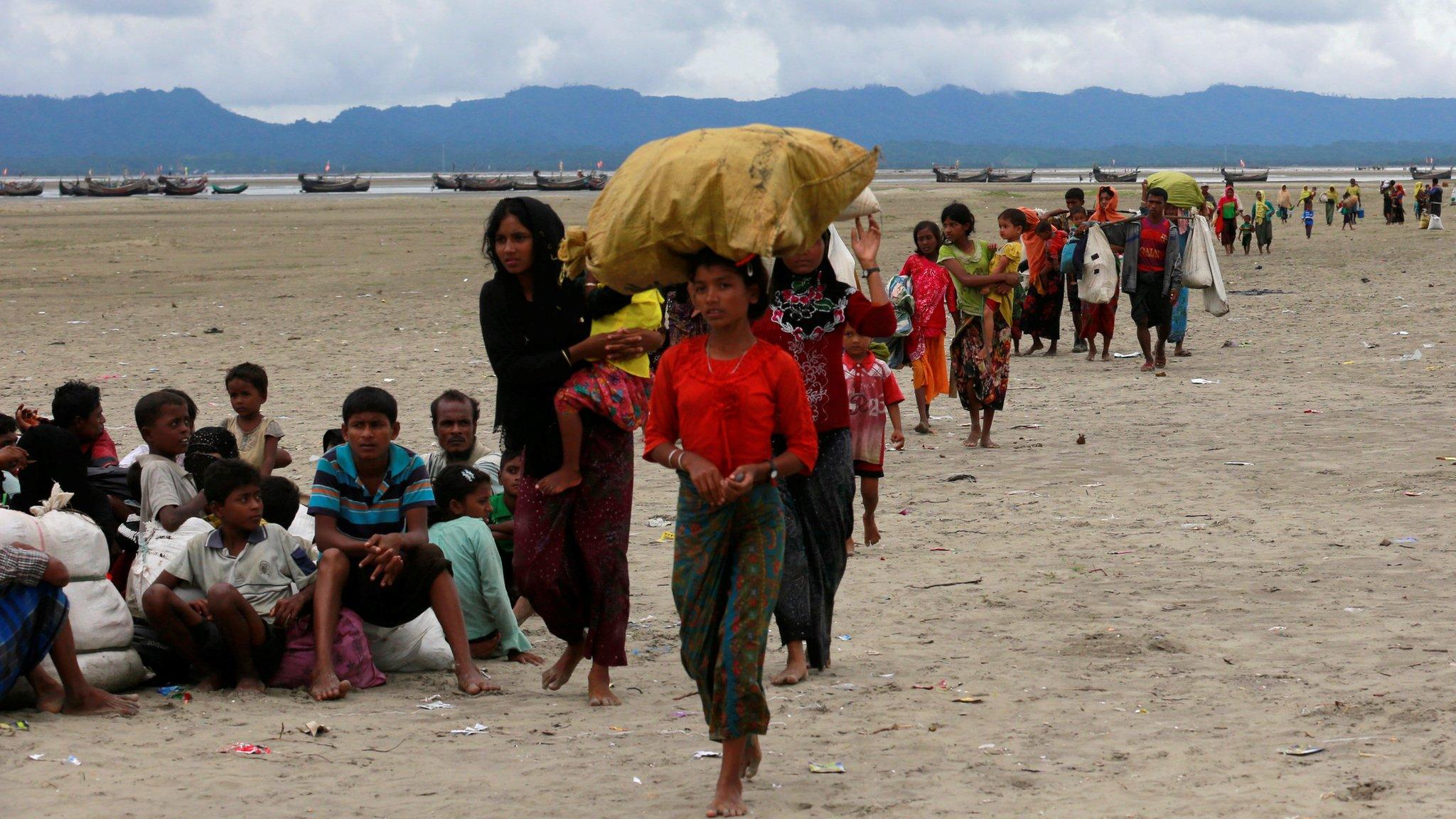Rohingya crisis: Myanmar VP 'concerned' about Rakhine exodus
- Published
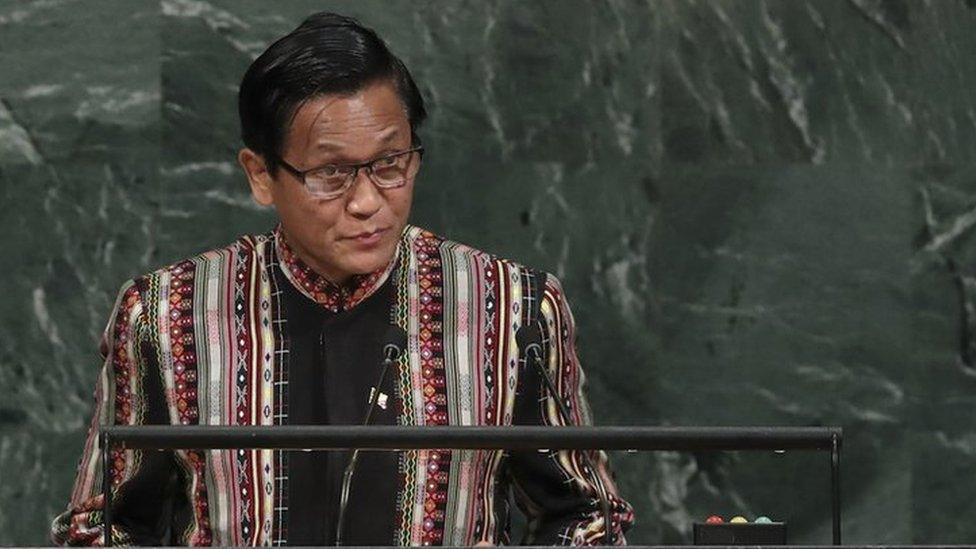
Mr Van Thio said the situation in Rakhine had "improved"
Myanmar's Vice-President Henry Van Thio says his government is "deeply concerned" about the exodus of people from Rakhine state into Bangladesh.
Speaking at the UN General Assembly, he said Myanmar was investigating "a problem of significant magnitude".
But he repeated the government line that the reason for the upheaval was unclear and that the "great majority" of Muslims had stayed behind.
De facto leader Aung San Suu Kyi has also downplayed the crisis this week.
She is facing rising criticism after she delivered a speech in Myanmar on Tuesday that did not address allegations of rampant rights abuses by the army against the mostly Muslim Rohingya minority in Rakhine.
The BBC's Jonah Fisher looks at Ms Suu Kyi's speech
She said more than half of Rakhine's Muslims - the Myanmar government does not use the term Rohingya - had stayed. She also claimed that there had been no acts of violence or village clearances since 5 September, which has been widely disputed.
On Wednesday Mr Van Thio repeated this view, saying: "I'm happy to inform you that the situation has improved."
He was speaking at the UN General Assembly in place of Aung San Suu Kyi. She declined to attend the General Assembly in order to handle the crisis.
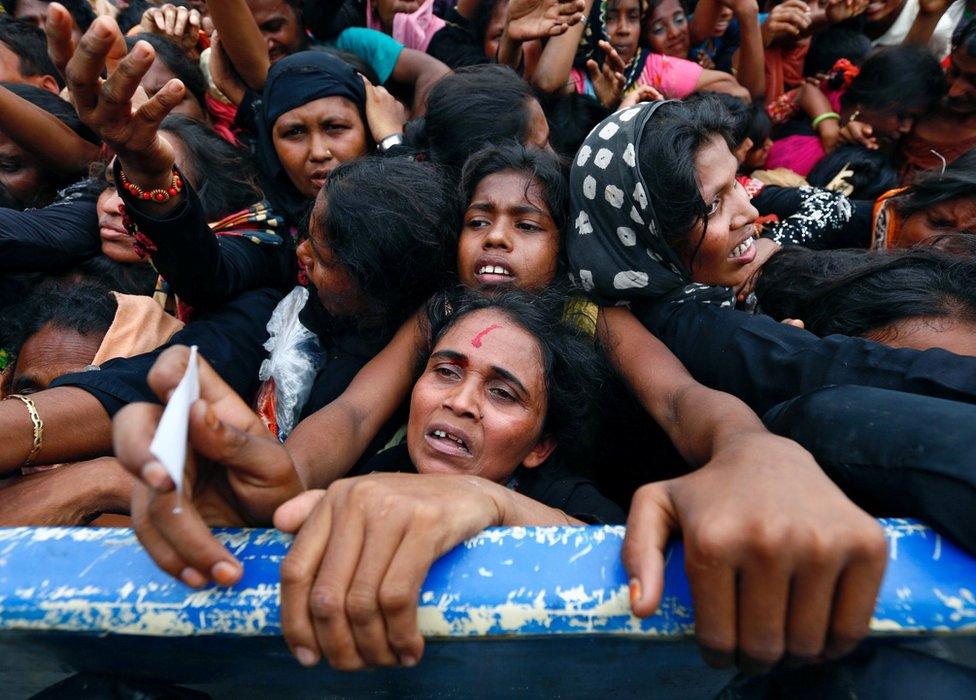
Tens of thousands of Rohingya migrants are now in makeshift camps in Bangladesh with limited aid available
He said not just Muslims but other minority groups had fled, and security forces had been told to "take full measures to avoid collateral damage and the harming of innocent civilians".
He also said aid would be distributed "without discrimination".
The Rohingya are denied citizenship in Myanmar and are widely despised.
Dr Win Myat Aye said most Muslims had stayed in Rakhine
More than 400,000 have fled from Rakhine to neighbouring Bangladesh amid a military crackdown, launched shortly after a 25 August attack on police posts by Rohingya militants.
The Burmese military is widely accused of committing atrocities amounting to ethnic cleansing.
The military says its operations are aimed at rooting out terrorists and has repeatedly denied targeting civilians.
In a possible sign of increased tensions in Rakhine state, a large group of Buddhist local residents reportedly tried to block an International Committee of the Red Cross (ICRC) aid shipment thought to be bound for Rohingya Muslims late on Wednesday.
They had gathered at a jetty in the state capital of Sittwe where aid workers were loading the supplies onto a boat. Myanmar's government said the crowd grew "aggressive" and threw petrol bombs, and were dispersed by police.
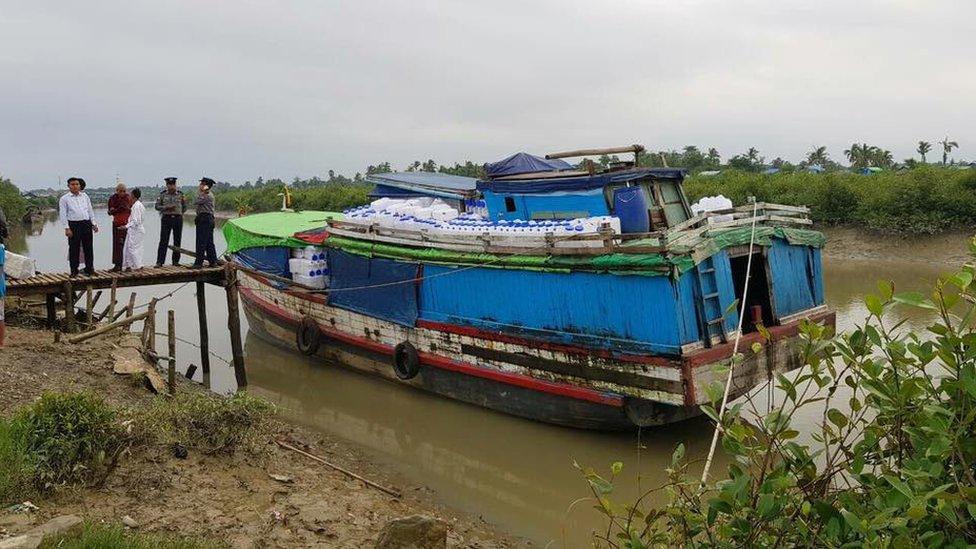
Myanmar's Information Committee posted on Facebook a picture which it said was of the boat carrying ICRC supplies
ICRC spokeswoman Graziella Leite Piccoli confirmed to the BBC that there had been an incident, but could not confirm other details.
She said aid workers "managed to engage the people in dialogue, communicating that we work transparently and were there for everyone in need", and were eventually left alone with the supplies.
Watch: Who are the Rohingya?
On Wednesday at a UN Security Council meeting, US Vice-President Mike Pence accused the military of showing "terrible savagery" towards the Rohingya, the strongest remarks from the US yet on the crisis.
He said the violence would "sow seeds of hatred and chaos that may well consume the region for generations to come and threaten the peace of us all".
Other world leaders this week have also called for an end to the violence, with French President Emmanuel Macron calling it "genocide" and Bangladesh's Prime Minister Sheikh Hasina saying it was an "unbearable human catastrophe".
- Published19 September 2017
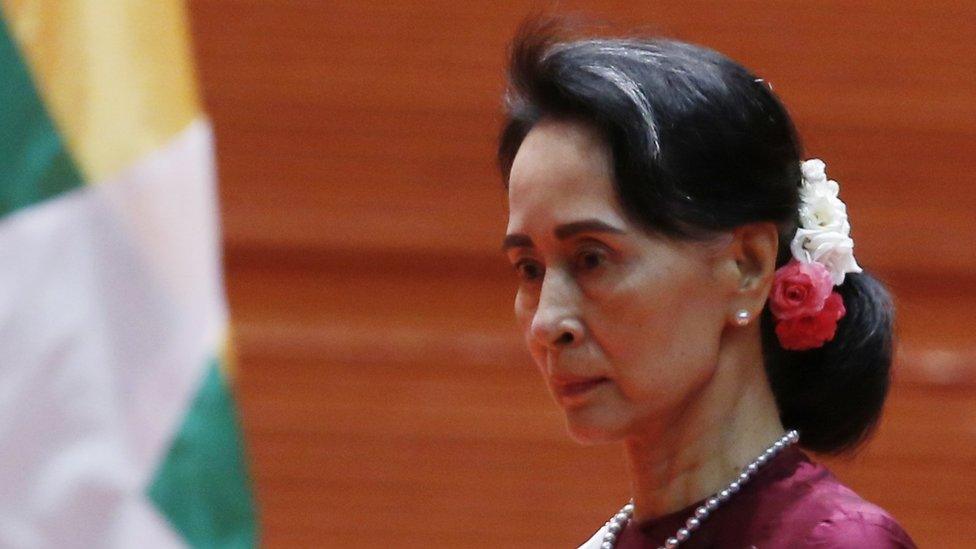
- Published19 September 2017
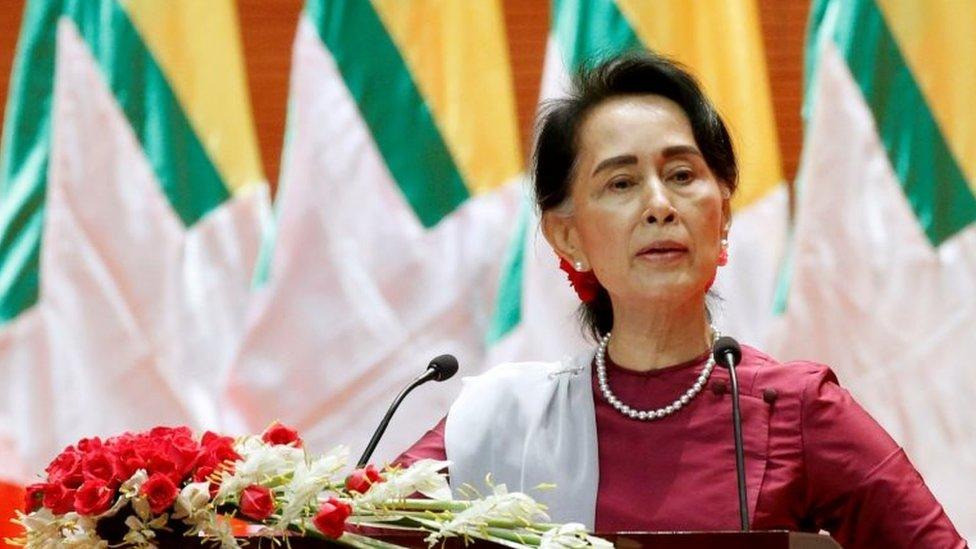
- Published19 September 2017
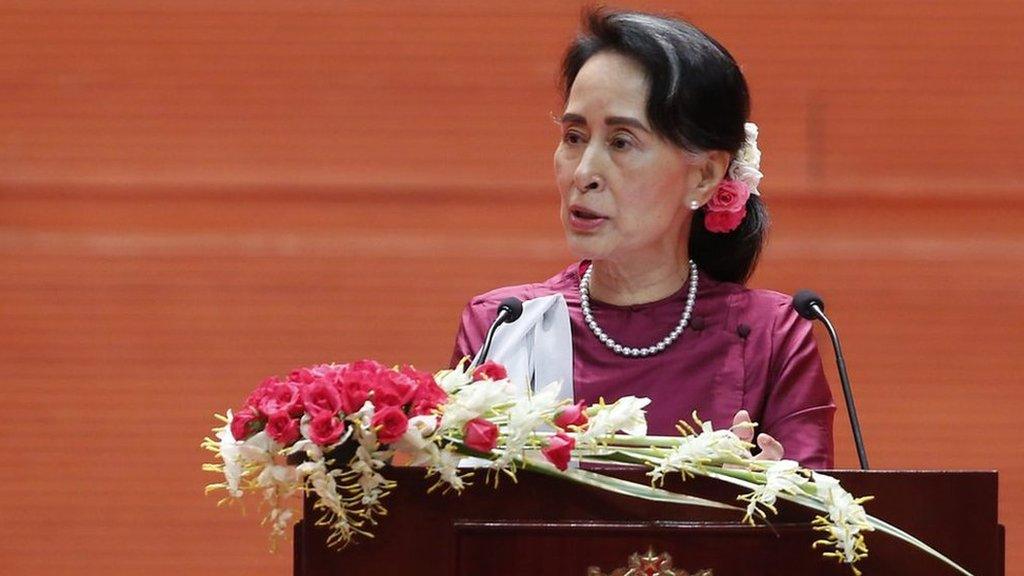
- Published20 September 2017
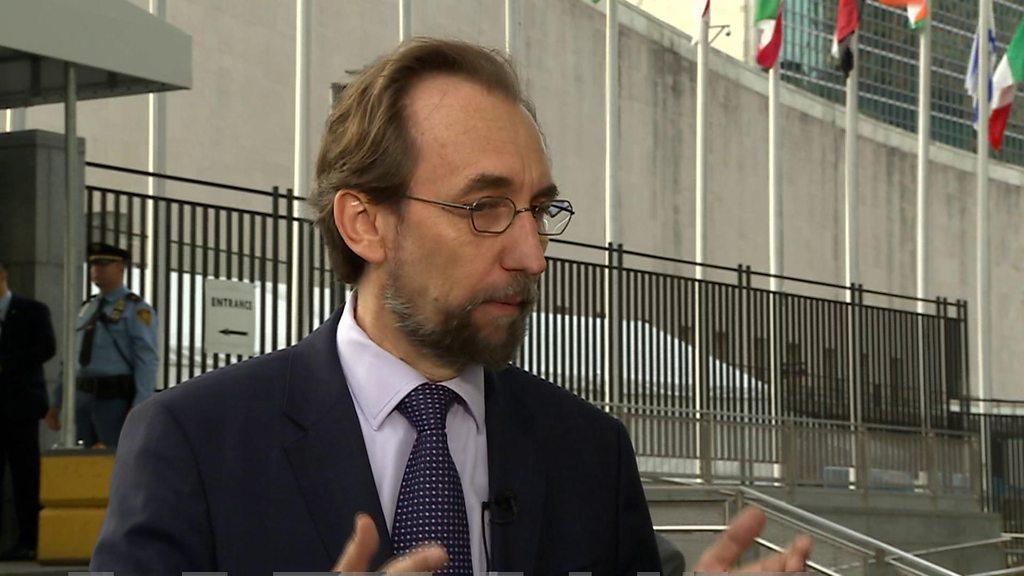
- Published10 January 2017
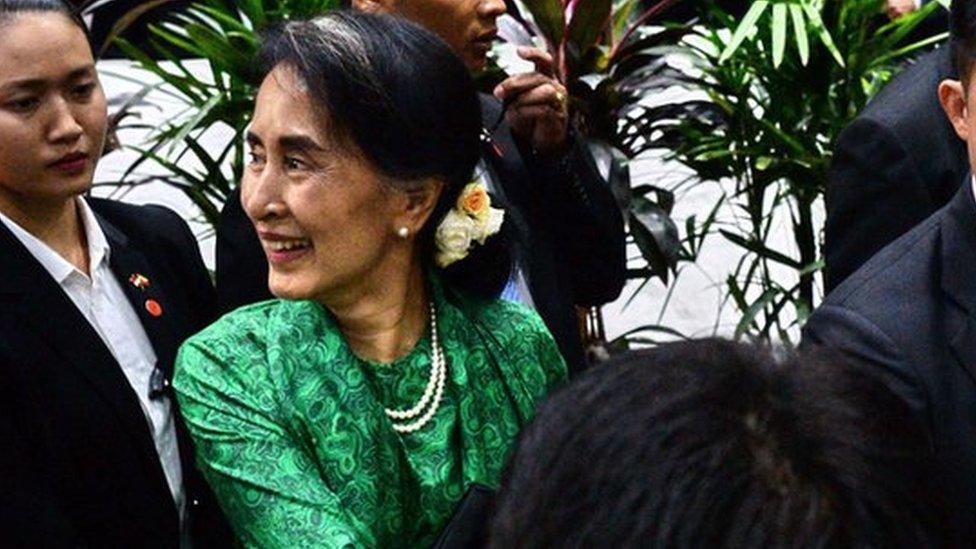
- Published7 September 2017
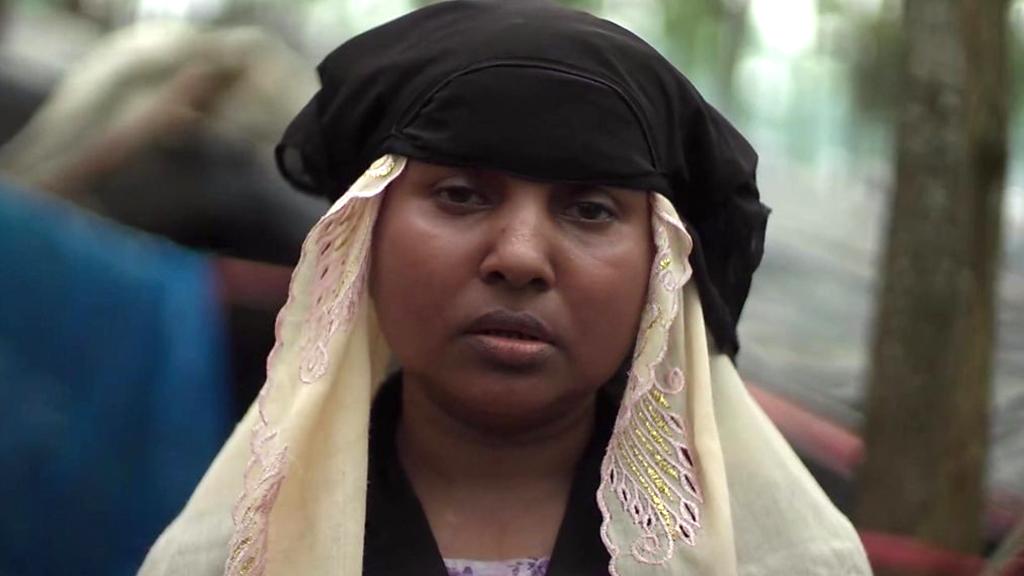
- Published11 September 2017
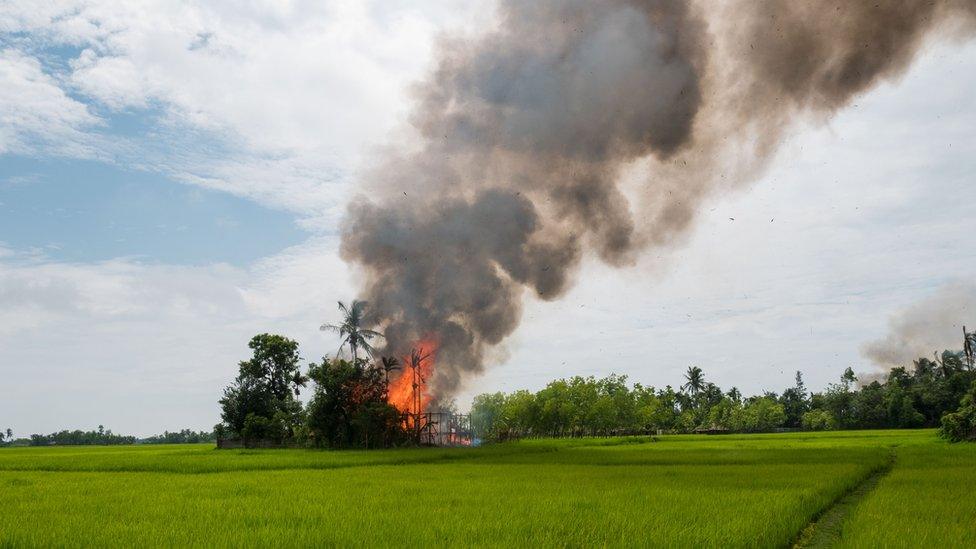
- Published19 September 2017
